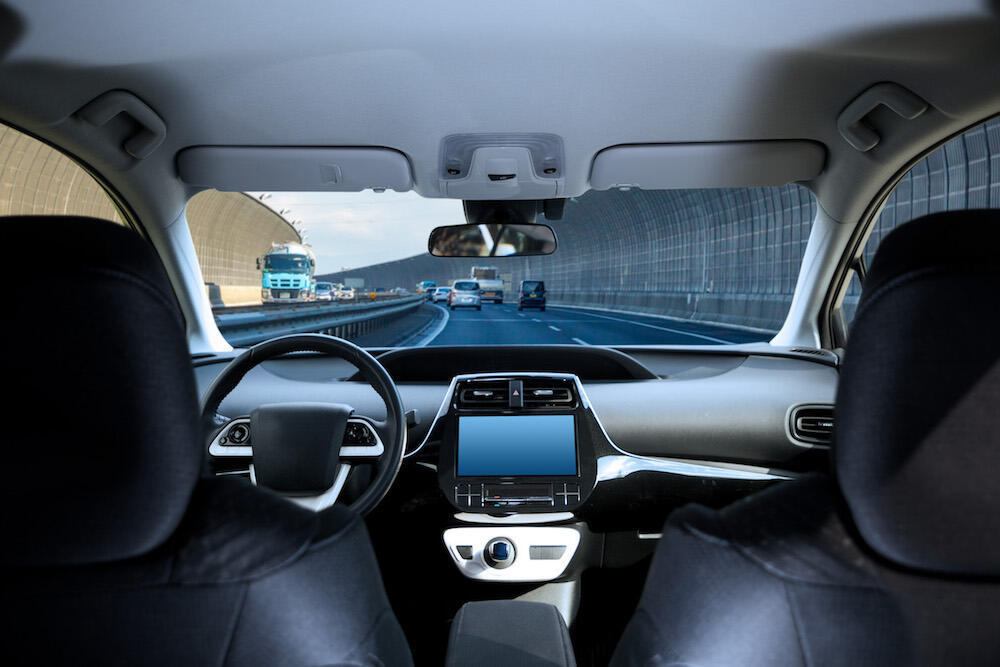
May 28, 2019
Autonomous cars are the future, VCU expert says. But it might be a while.
Share this story
“It’s not just your car, it’s your freedom” was a slogan coined in the 1990s by General Motors. Since their creation, automobiles have provided mobility and the freedom to travel long and short distances. But even as the demand for self-reliant technology increases, a Virginia Commonwealth University transportation expert says car manufacturers are racing to create fully autonomous vehicles at a faster rate than the demand for the cars.

There are five levels of automation, which define the level of autonomy. Level-five autonomous vehicles require no input from drivers. They don’t have controls for braking, steering or acceleration. So far, automakers such as Tesla, Cadillac andVolkswagen have created level-two, semi-autonomous cars.
While the components of the self-driving car are inexpensive and promote automotive safety, transportation industry expert George Hoffer, Ph.D., said the public currently has little desire in owning fully autonomous vehicles. In an interview with VCU News, Hoffer, economics professor emeritus at Virginia Commonwealth University, discussed why fully autonomous vehicles might not exist for years to come.
Why are self-driving cars the next step in the auto industry's evolution? What will come next?
Everybody is rushing to do something that is much longer coming than what people think and what has been promised. And I think a number of firms, both currently in the industry and hopeful to be in the industry, are spending billions of dollars while no specifications have been given, only general parameters in which the autonomous vehicle will operate.
A true self-driving car is a car that doesn't even have a steering wheel or a brake. I believe that people aren’t really interested in that. They’re interested in the components of the self-driving car. They’re interested in pushing the frontier in terms of driving faster and driving closer in congested areas and, in doing so, minimizing their risk of an accident. I also believe there's not a market at this time for the fully autonomous vehicle. Study after study, including one done in 2019, has consistently shown that there’s a minimal market for true autonomous vehicles.
Those who do want it are aging baby boomers, including myself. What in essence the self-driving car will permit is for baby boomers and the next generation to age in place. They'll be able to stay in their homes. The AV — autonomous vehicle — will give them the mobility, and the ability, to age in place.
How do you think these cars will affect the auto industry?
Currently, we have manufacturers offering different levels of autonomous driving. Tesla was the first and offers the most advanced autonomous system. Cadillac is generally considered to be in second place. The level-five autonomous vehicle, again, has no steering wheel or brake. The “would-be” driver has no control whatsoever over the vehicle. That is the vehicle that I think we’re a long ways away from.
With time, as these building blocks of the autonomous vehicle become available and are adopted, the safety aspects of driving a car will be there even without the vehicle being fully autonomous.
However, there is a downside to some of these features. For instance, say you've been out at a bar at night and the vehicle perceives that you are a little impaired; it’s not going to let you go home. It’s not going to start the vehicle. This will irritate a lot of people.
Do you see yourself ever purchasing, or considering purchasing, a self-driving vehicle?
Yes, unequivocally. Gradually, each new vehicle that you buy will be getting closer and closer to being self-driving. For instance, backup cameras are essential to self-driving cars and they have been required, for the first time in the last year, on all vehicles sold in the United States. Eventually, every vehicle will approach being self-driving but it will be a long, long time. Components of the self-driving vehicle are really the latest manifestation of safety equipment. Do I myself want it? Not right now. I don’t need it but I want the components now and eventually, hopefully, I will want the autonomous vehicle to take over completely.
Subscribe to VCU News
Subscribe to VCU News at newsletter.vcu.edu and receive a selection of stories, videos, photos, news clips and event listings in your inbox.







